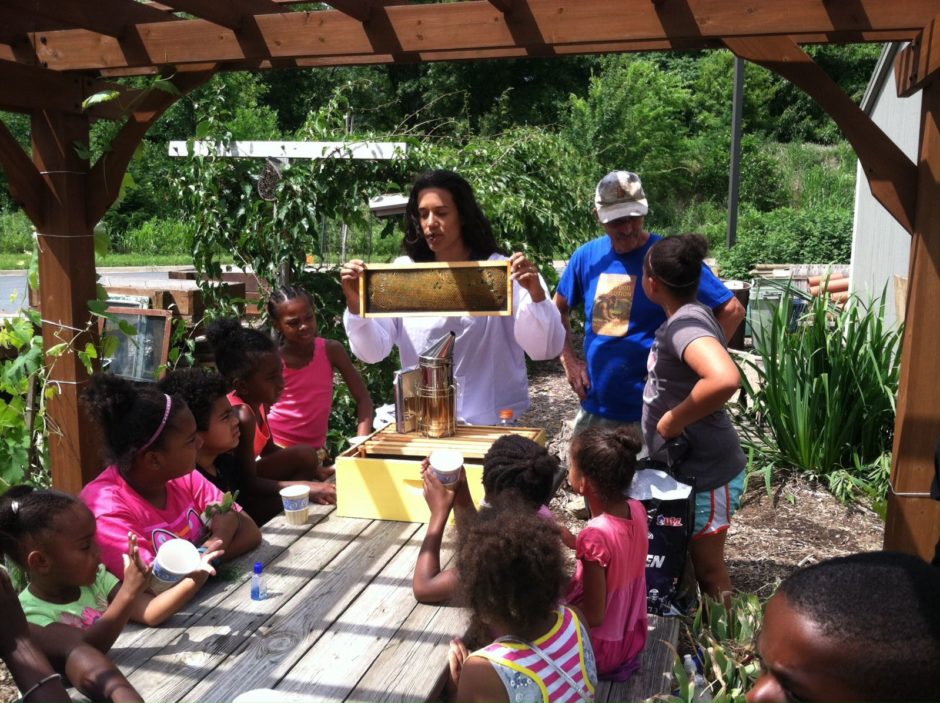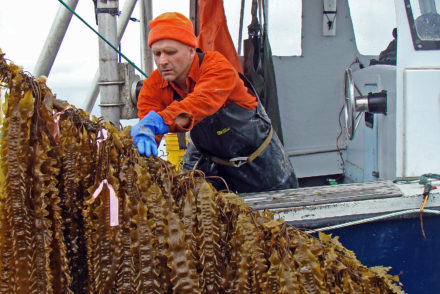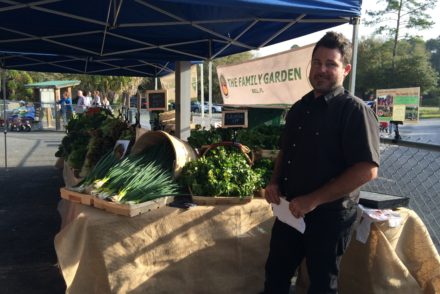“I see farming as an invaluable tool that can not only feed our bellies and the soil that sustains us, but also fuel powerful change and build thriving communities.”
Farmer, storyteller, activist, photographer, organizer. All could be used to describe Natasha Bowens. In 2010, Natasha travelled across the country in search of the under-told stories of farmers of color. Her resulting book, The Color of Food: Stories of Race, Resilience and Farming, tells these stories, and features portraits of the farmers she met along the way. Natasha runs the community gardens in her hometown, Fredrick, Maryland.
Describe your farm.
Over the past 6 years, I have worked on various small, sustainable market and community supported agriculture (CSA) farms from Upstate New York to rural Maryland and West Virginia, each ranging from about 1/2 –4 acres and marketing to farmers’ markets, local restaurants and CSA shareholders. I’ve also worked on urban farms growing primarily for education and community empowerment but also running farmers’ markets stands and selling to local restaurants and CSA shareholders.
Today, I’ve just finished a season working on a small CSA and market farm in Hampstead, Maryland, as part of a program I joined in 2015 called the Future Harvest Beginning Farmer Training Program through the Chesapeake Association for Sustainable Agriculture (CASA). The farm I trained on is Two Boots Farm run by Elisa Lane and grows a variety of produce and flowers for CSA members and a farmers’ market in Baltimore. She also markets to local restaurants and food entrepreneurs who specialize in added value fermented products like kimchi and fermented daikon radishes.
Simultaneously, I began running community gardens for the public housing community in my town of Frederick, Maryland. We have two gardens, one in each of our largest communities, located behind our community centers on about 1/4 acre of land each. We have built raised beds filled with topsoil and compost from our city landfill’s compost operation and have a hoop house where we are growing in the ground. We have about 25 plots where residents grow food for their families. The residents’ crops range from strawberries and collards to lemongrass and African peanuts.
A typical day for me would either include driving one hour to Two Boots Farm to harvest for CSA and market, wash and process the vegetables, till and prep new beds for planting, transplant crops ready to go in the ground or seed new trays of succession planted crops like beets and scallions, maintain cucumber or tomato plant trellises, harvest flowers and make bouquets. Or a typical day in the community gardens includes driving between the gardens to water flower beds, the hoop house and our youth garden plots, fill the water tank for residents, fix broken wheelbarrows, aerate the compost piles, add mulch to the pathways, plan for educational programming and events, buy supplies, write grants, and run Youth Garden Club workshops with our resident youth where we plant, harvest and cook in the garden!
What led you to farming?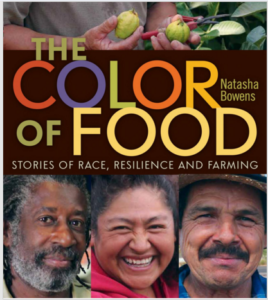
I was first drawn to farming because I saw that it was the elephant in the room with the issues I cared about like the environment, health and social justice. I wanted to do my part in healing this planet by growing in harmony with the land, and I wanted to heal my body by having control over what I put in it. Most importantly, I saw farming as a tool to reclaim justice and sovereignty for people who have suffered the most injustice in this country. During my journey of learning to farm, I also began digging into the powerful stories of farmers of color and communities of color who grow food to empower their community, preserve cultural traditions and tackle social justice issues. This value of community and empowerment is what keeps me in farming. I see farming as an invaluable tool that can not only feed our bellies and the soil that sustains us, but also fuel powerful change and build thriving communities.
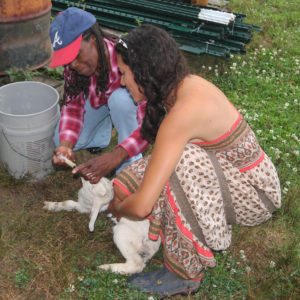 What kind of training did you have as a farmer?
What kind of training did you have as a farmer?
Though I read many books from Elliot Coleman to Booker T. Whatley, my most impactful training came from working directly with farmers. And it wasn’t always the farmers I worked a season or two with who made the biggest impact on my learning, sometimes it was those who I only spent a few days with while interviewing for my book. Some of my biggest mentors on farming practices were urban farmers like Eugene Cooke of Grow Where You Are, LLC in Atlanta, Will Allen of Growing Power in Milwaukee, and Olivia & Greg Willerer of Brother Nature Produce in Detroit. Other great mentors have been rural farmers I’ve worked for like Rebekah Harbour and Elisa Lane. The Future Harvest CASA training program was helpful as well!
How have you dealt with the challenges of financing the farm and providing for your own livelihood?
For me, I only have to worry about financing the community gardens and their programming, which falls into the typical nonprofit challenge of constantly being dependent on grants and fundraising for our materials, our plans to expand and our plans to have programming and events for our gardeners. It’s not a position that feels very secure or sustainable, and I know that is how many farmers feel trying to finance their farms. Though most farms are for-profit and not dependent on grants (although more and more nonprofit farms are beginning to sprout up), they are dependent on the instability of the market and vulnerable to environmental risks that can wipe them out overnight. I have seen many a farmer struggling to stay afloat between wavering CSA members and farmers’ market sales and inconsistent restaurant orders, or from having to finance hoop house repairs caused by the snow or crops getting wiped out from pests, disease or weather. A huge percentage of farmers have to work outside jobs to pay themselves or forgo paying themselves while depending on partners’ outside jobs to pay the bills, all while trying to pay off debts from the expensive start-up costs. I pay myself very little to run the community gardens and my pay is also dependent on grant funding—there’s no job security, no health care, no benefits, like many farmers. We just have to keep going and hope that we can keep doing what we think is important—feeding people.
What changes would you like to see in agri/food culture right now?
So many changes! I would love to see real reform in our agricultural policies that shift subsidies away from large corporate monoculture farms and truly invest in supporting small, regional farmers. We need much more investment in support for beginning farmers, immigrant farmers, farmers of color, women farmers and urban farms. We need a lot more training/incubator farm programs both rural and urban. I would love to see a huge shift in how our food system operates, returning to the regional system agriculture/food used to have and similar to what Vermont and New England are doing now to produce 80% of their own food regionally.
It would be great to see our farmers and farmworkers guaranteed livelihood benefits for serving this country, receiving health care as our teachers and government employees do. We need more protections for farmers and their farms, including protection from land loss and development for urban farmers. We need policies and regulations to work for our small farmers instead of making it harder for them to stay in business. Mostly, we need a major shift in who holds the power in agriculture/food just like the shift in power we need in general in this country.
Photos courtesy of Natasha Bowens.

